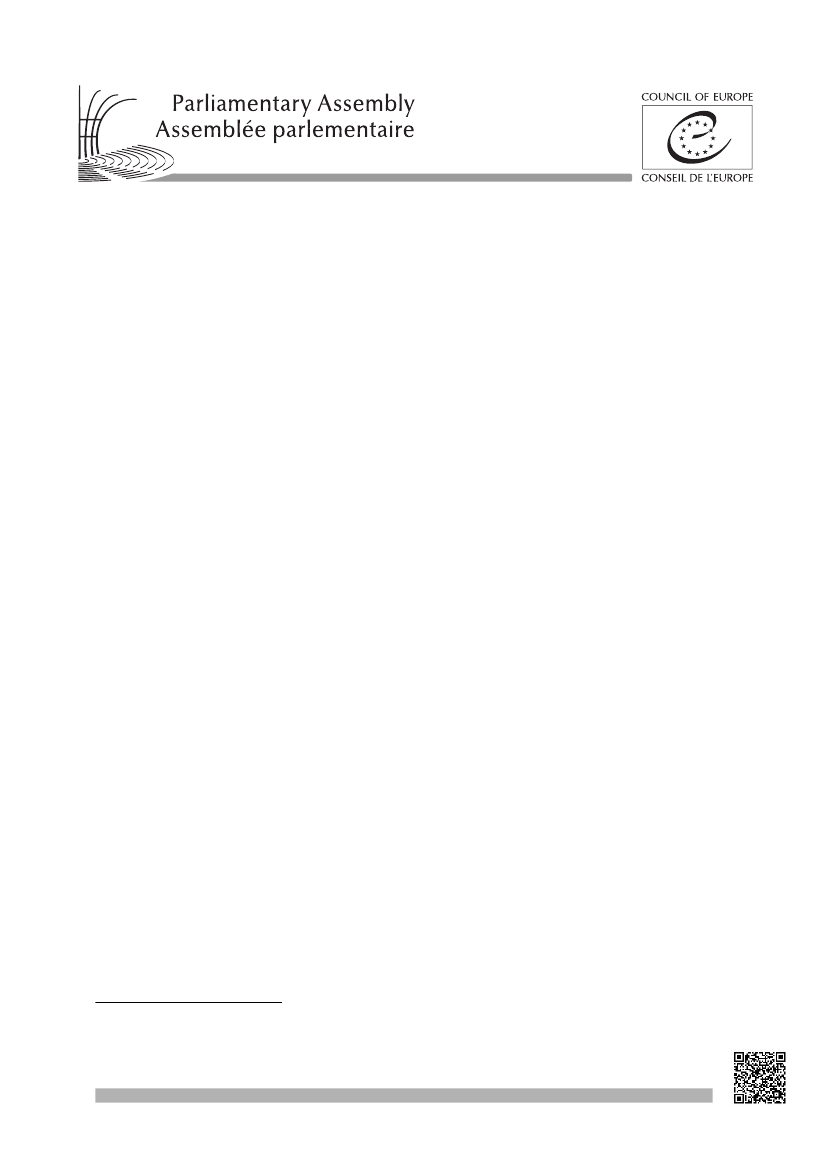
Kulturudvalget 2021-22
https://pace.coe.int
Resolution 2421 (2022)
1
Provisional version
Sports policies in times of crisis
Parliamentary Assembly
1.
The Covid-19 pandemic has completely disrupted the world of sport, which has been one of the sectors
hardest hit by the restrictions imposed. The Parliamentary Assembly highlights the important part played by
sport in the economic systems of the Council of Europe member States but above all its key role as a means
of building social capital, its contribution to social inclusion and combating inequalities, its educational impact
and, of course, its beneficial effects on health and quality of life.
2.
The Assembly welcomes the new text of the revised European Sports Charter of the Council of Europe,
which states that access to sport for all is a fundamental right and asserts that all human beings have an
inalienable right of access to sport in a healthy environment.
3.
The recovery and sustainable development strategies, which are designed to rebuild better what has
been destroyed by the crisis, should foster an appreciation of the value of sport and physical activity as factors
for human development and personal and collective well-being and for social development and economic
growth, taking due account of its links with other sectors such as health, education, tourism, construction,
transport, media, retail and others. There is a need to highlight the leverage effect that promoting sport can
have in all these sectors and to step up co-operation between public authorities and sports organisations to
create conditions which foster active lifestyles and facilitate and normalise access to physical activity and
sport.
4.
The flow of financial aid must not fuel corruption. The level of oversight should be raised and respect for
the highest standards of integrity should be a prerequisite for the provision of financial support or support in
kind for sport. Co-operation should be established between all stakeholders to ensure a consistent multi-
stakeholder and multi-disciplinary approach and to fight corruption in sports competitions effectively.
5.
International sports governing bodies have a responsibility to seek out balanced, well thought-out
solutions in response to public health and financial issues which cannot easily be reconciled. This must not be
carried out in a way that is opaque, without listening carefully to all stakeholders. Qualification tournaments,
the Olympic and Paralympic Games and other international competitions must take place safely: athletes and
other people involved must not be forced to weigh their participation against their health and the health of
others.
6.
To back up the financial recovery of the sport sector and increase the resilience of the sport system,
solidarity mechanisms will have to be established and financial solidarity will have to be enhanced, operating
between high-level and grassroots sport, and between different sports and across the world.
7.
The whole sports movement, from the top to the bottom, should learn lessons from the crisis, so as to
evolve and modernise. Sports organisations and clubs should, in particular, gear their services even more to
the needs of athletes and members. Digitisation could be a driving force in this regard. Various online tools
1.
Assembly debate
on 26 January 2022 (5th sitting) (see
Doc. 15426,
report of the Committee on Culture, Science,
Education and Media, rapporteur: Mr Carlos Alberto Gonçalves).
Text adopted by the Assembly
on 26 January 2022
(5th sitting).
F - 67075 Strasbourg Cedex
|
Tel: +33 3 88 41 2000
|
pace.coe.int